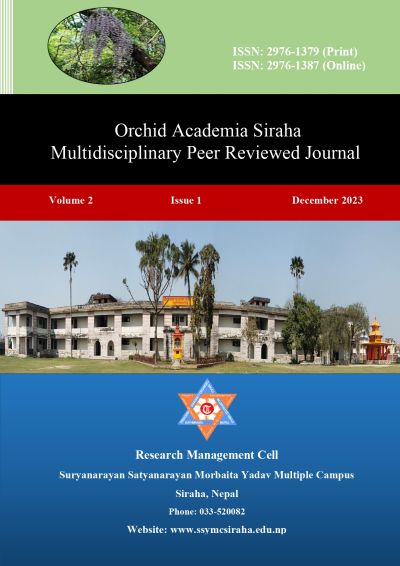Practices of Inclusive Education at the Schools in Nepal
DOI:
https://doi.org/10.3126/oas.v2i1.65604Keywords:
different capacities, diverse background, inclusive education, minorities groups, qualitative methodAbstract
This paper attempts to analyze the practices of inclusive education at the schools in Nepal. The central theme of study was to analyze the practice of inclusive education in the classroom and it’s challenges. This paper used a qualitative research design in an interpretive way. Data sources, such as interviews with head teachers, teachers, and students, and field observation was conducted in the Palungtar Municipality of Gorkha district. The participants, respondents and study site were purposively selected. The study finding is that the inclusive education approach is not fully implemented at the school level, highlighting the importance of implementing such an approach. This approach is relevant to address the different capabilities of students in the classroom. This approach is particularly relevant in the classroom of Nepal as it effectively teaches students from diverse backgrounds, which both teachers and students appreciated this inclusive educational approach. However, inclusion practice is important and crucial for addressing deprived, disadvantaged, and marginalized groups of education.
Downloads
Downloads
Published
How to Cite
Issue
Section
License
Copyright (c) 2023 RMC, SSMYMC, Siraha

This work is licensed under a Creative Commons Attribution 4.0 International License.
This license allows reusers to distribute, remix, adapt, and build upon the material in any medium or format, so long as attribution is given to the creator. The license allows for commercial use.




